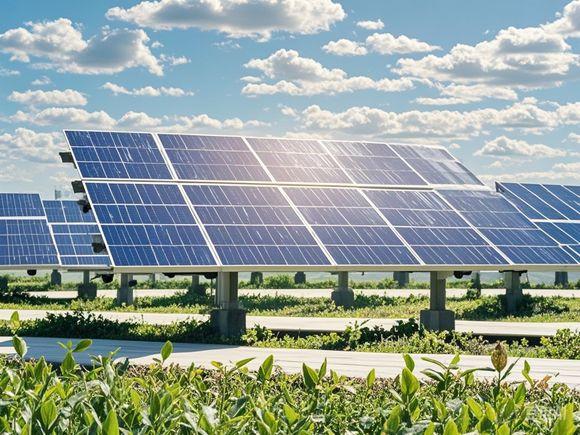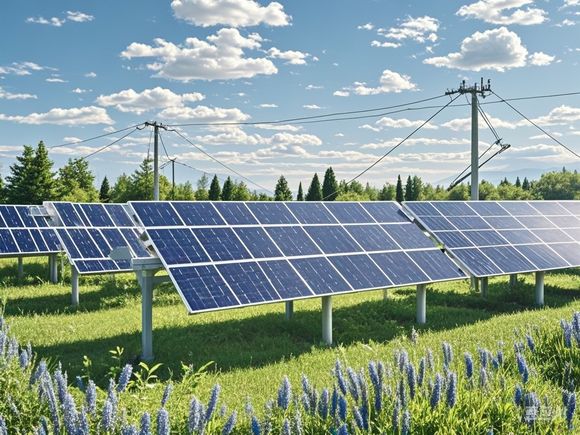Small-Scale Solar Power Stations: A Reliable Option?
Hey there, fellow exporters and importers! Today, I'm diving into the world of renewable energy and exploring the reliability of small-scale solar power stations. Let's talk about how these little powerhouses can pack a big punch when it comes to sustainable energy solutions.
First off, let's define what we mean by a small-scale solar power station. We're talking about systems that can generate enough electricity to power homes, businesses, or even small communities. These stations typically consist of solar panels, an inverter to convert the DC power from the panels into usable AC power, and a battery storage system to store excess energy for use during the night or on cloudy days.
So, are these small solar stations reliable? Well, the short answer is yes, but let's unpack that a bit. Solar panels have no moving parts, which means they don't wear out like traditional generators. With proper maintenance and cleaning, they can last for decades. The inverters and batteries are the components that may need to be replaced more frequently, but advancements in technology are making them more durable and longer-lasting.

One of the biggest factors in the reliability of a small solar power station is the quality of the components. Investing in high-quality solar panels, inverters, and batteries from reputable manufacturers can make a significant difference in the performance and longevity of your system. Cheaper alternatives might seem appealing, but they can lead to higher maintenance costs and shorter lifespans.
Another aspect to consider is the location. Solar power stations work best in areas with plenty of sunlight. However, even in regions with variable weather, modern solar systems are designed to cope with a range of conditions. Smart inverters and monitoring systems can adjust the performance of the station to maximize energy production, even on less sunny days.
Reliability also extends to the financial side. Solar power stations can provide a stable source of energy with predictable costs over time. Once the initial investment is made, the energy from the sun is essentially free, which means your energy bills become more predictable and potentially lower than traditional grid electricity.
In terms of resilience, small solar power stations can be designed to withstand various weather conditions, including high winds and heavy snow. Many systems come with warranties and after-sales support, providing peace of mind in case something goes wrong.
To sum it up, small-scale solar power stations are a reliable option for those looking to switch to renewable energy. With proper planning, quality components, and regular maintenance, these stations can provide clean, sustainable energy for years to come. As an exporter or importer in this field, it's important to understand the technology and the market to ensure you're offering or sourcing the most reliable solutions for your clients.
So, what are your thoughts on small-scale solar power stations? Have you had any experience with them? Share your insights in the comments below!
Content expansion reading:
Opening statement:

"Hey guys, I'm here to discuss whether or not you should invest in a small-scale photovoltaic power station. This is a hot topic these days as solar energy is becoming more popular and cost-effective. So let me give you the lowdown on this."
Introduction:
"First off, it's important to understand what a small-scale photovoltaic power station is. It's basically a self-contained system that converts sunlight into electricity. Sounds simple enough, right? Well, it can be quite complicated, but for the sake of this discussion, we'll just focus on its potential benefits and drawbacks."
Benefits:
"One thing that makes small-scale photovoltaic power stations appealing is their affordability. Compared to larger, more expensive solar farms, these units are relatively cheap to set up and maintain. Plus, they don't require a lot of land or expertise to operate. So if you're looking to generate some renewable energy without breaking the bank, this could be a great option for you."
Drawbacks:
"However, there are also some downsides to consider. For starters, small-scale systems might not be able to provide enough power for your entire household or business. They might only be able to cover a small portion of your energy needs. And secondly, they can be less efficient than larger installations. The technology behind them might not be as advanced, which means you might end up paying more in electricity bills."
Pros and Cons:

"On the positive side, small-scale photovoltaic systems can help you reduce your carbon footprint by generating electricity from renewable sources. They're also easy to install and take up minimal space, making them ideal for small businesses or apartments. And speaking of space, they don't require a large area like large-scale solar farms do. So if you're living in a tight space, this could be a great option for you."
Cons and Pros:
"But there are also some downsides to consider. Small-scale systems might not be able to provide enough power for your entire household or business. They might only be able to cover a small portion of your energy needs. And secondly, they can be less efficient than larger installations. The technology behind them might not be as advanced, which means you might end up paying more in electricity bills."
Comparison with Bigger Systems:
"Now, when it comes to comparing small-scale systems with bigger installations, there are some things to keep in mind. Larger systems tend to be more expensive, but they can produce more power and last longer. Plus, they might have better efficiency ratings and warranties, which means you'll get more peace of mind. On the other hand, smaller systems may be easier to install and maintain, but they might not be as durable and reliable as larger units."
Conclusion:
"So, what does all this mean for you? If you're thinking about investing in a small-scale photovoltaic power station, it's important to weigh both the benefits and drawbacks. Consider your specific needs, budget, and location before making a decision. And remember, even though small-scale systems might seem like a good option, they still have room for improvement. So keep an eye on the latest advancements in the industry and stay informed about the latest trends."
Articles related to the knowledge points of this article:
How Much Does a Small-Scale Solar Power System Cost?
Understanding the Cost of Building a Solar Power Plant
Affordable Solar Power Solutions for Your Home or Business
Solar Power for Your Home: A Guide to Small-Scale Solar Electric Systems